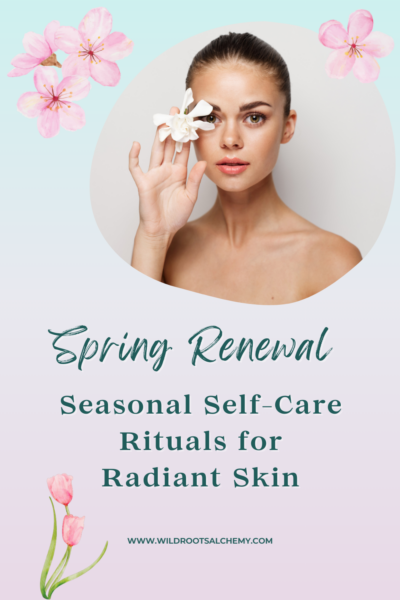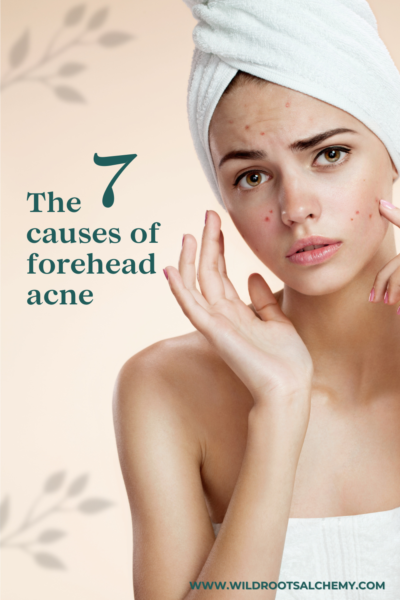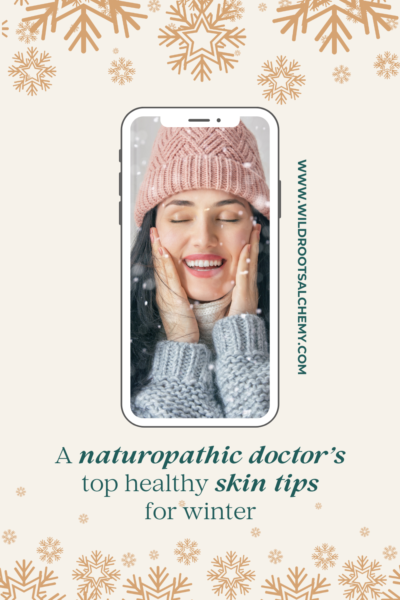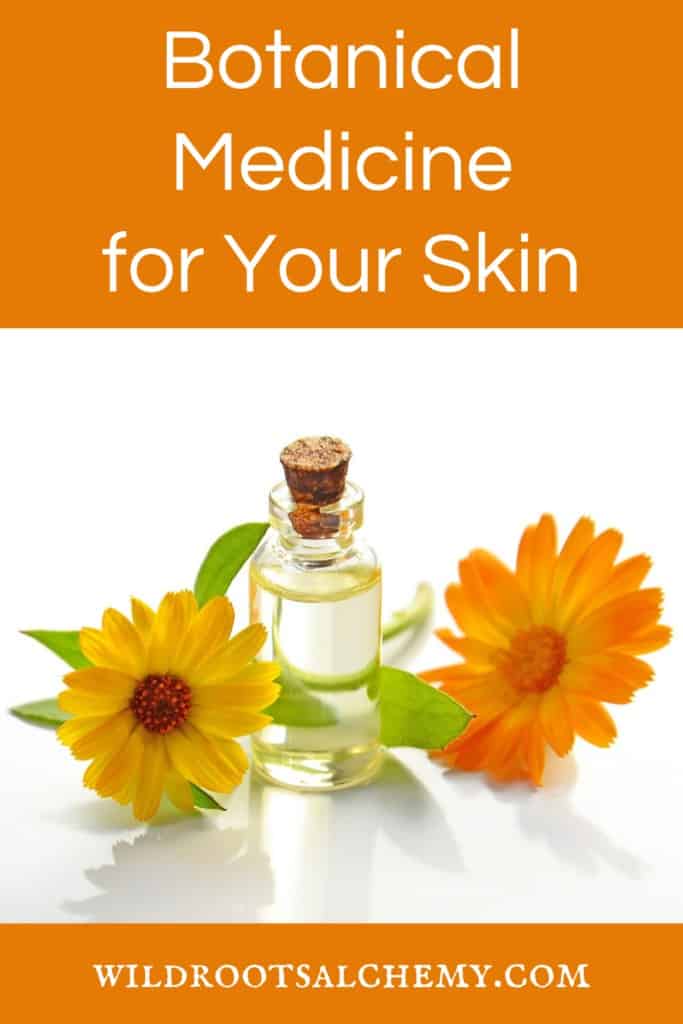
When it comes to healing skin conditions like acne and eczema, botanical medicine is a helpful addition to your skincare. While it’s important to know that skin healing happens from the inside out, it still matters what we put on our skin!
I’m a big advocate for not putting anything on your skin that you wouldn’t put in your mouth. Our skin absorbs a majority of what we put on it, which means any toxic chemicals in our skincare products make their way into our bloodstream, negatively affect the health of our organs, and disrupt our hormones and immune system. Many ingredients in conventional skincare products (like lotions, sunscreens, body washes, and cleansers) are actually incredibly harmful for your health, and some are even known carcinogens. And these products probably lack the nutrients and ingredients your skin craves!
The healthiest and most effective skincare products are those with all-natural, preferably organic ingredients.
Avoid products that contain:
- Mineral oil (petrochemical byproduct)
- Parabens
- Phthalates
- Sodium lauryl sulfate (SLS) and sodium laureth sulfate (SLES)
- Polyethylene glycol, propylene glycol
- DMDM hydantoin (converts to formaldehyde!)
- Triethanolamine (TEA), diethanolamine (DEA), monoethanolamine (MEA)
- Cyclomethicone
- Chemical sunscreens like benzophenone & oxybenzone (use non-nanoparticle zinc oxide instead)
- Triclosan
- Artificial colors & dyes
- Synthetic fragrances (usually labeled as “fragrance” or “perfume”)
Topical Herbal Skincare
Herbs are a powerful addition to your topical skincare. Many natural products contain herbal extracts; just make sure to check the labels to be certain there aren’t any toxic ingredients like those listed above. You can also make your own DIY skincare at home using herb-infused oils and all-natural, food-grade ingredients.
Plants contain a variety of skin-tonifying, redness-reducing, wound-healing, and inflammation-modulating constituents that can help soothe your skin and heal and prevent flare-ups of conditions like acne, eczema, and rosacea.
These are some of my favorite botanicals to work with topically for skin healing:
Calendula
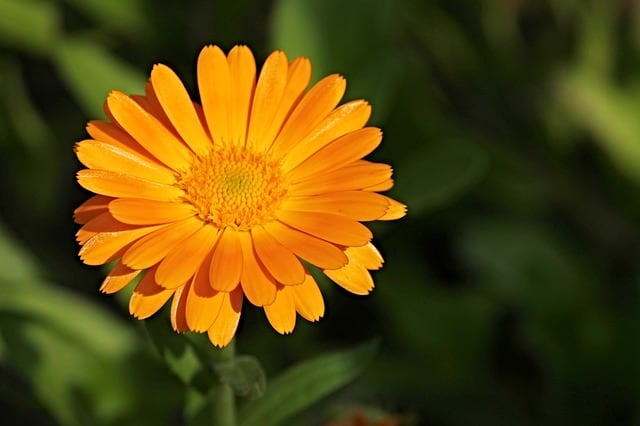
Calendula flowers bloom throughout the year (“calends”) and are correlated with the astrological Sun archetype due to the plant’s bright blooms and warming qualities. These bright, resinous flowers are useful for nearly every type of skin condition. Calendula’s medicine helps wounds and acne spots heal much more rapidly, and helps prevent scar formation. Calendula also calms down inflammation and prevents pus formation, which can be useful for cystic acne.
Calendula is specific for the cold/depression tissue state that results in symptoms of heat due to damp stagnation: think chronic low-level inflammation with periodic flares of swelling, pus, redness, and pain as an innate response to the stagnation. As a lymphagogue and mild stimulating alterative, it acts like a gentle “detoxifier” of the skin, resolving damp stagnation that can lead to skin breakouts.
Calendula is the perfect herb for an infused oil. Its versatility allows it to be added to a variety of DIY skincare products, like creams, lotions, and salves, and it is excellent as a first aid remedy.
To make a simple Calendula-infused oil, fill a pint glass jar about 3/4 full of dried Calendula flowers and add olive oil until it covers the herbs by about an inch. Store in a sunny window, shaking it once daily. After about 2-3 weeks, strain out the flowers and you are left with a Calendula-infused oil. Ta-da! This oil is great as a facial moisturizer even by itself.
Yarrow
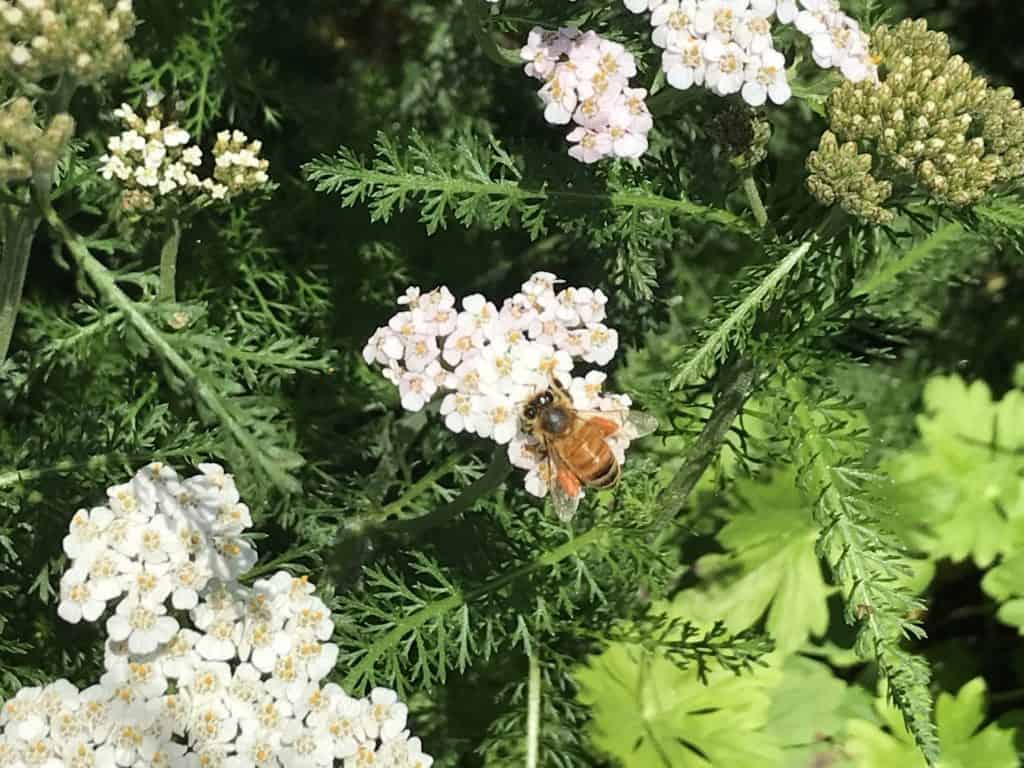
As a plant associated with the Mars archetype, Yarrow’s leaves and flowering tops are useful for modulating inflammation and symptoms of the heat/excitation tissue state, such as redness and actively inflamed acne spots. Yarrow is also a great first aid remedy for deep wounds and cuts.
I like using a Yarrow poultice as a tonifying facial or as a spot treatment for acne. Simply add enough water to Yarrow powder (or finely ground dried Yarrow leaves or flowers) to make a thick paste, and apply the paste to your face or to any inflamed spots. Leave on for 10 minutes or so and then wash off.
Aloe vera gel
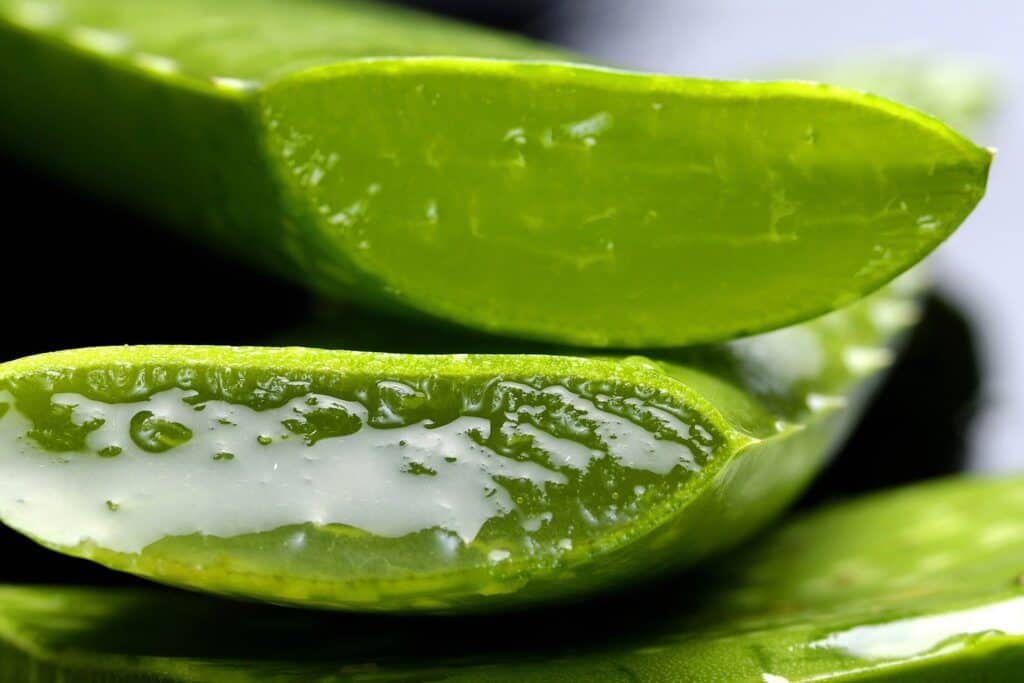
As an archetypal Moon plant, Aloe vera gel is cooling, moistening, and soothing to the skin and mucosal membranes. It also contains immunomoduluating polysaccharides that can help resolve inflammation.
Aloe vera gel is a great standalone skincare remedy for acne, inflamed skin, and sunburns.
My favorite acne scar DIY recipe uses aloe vera gel and MSM (methylsulfonylmethane) powder. Simply combine 4 parts aloe vera gel to 1 part MSM powder, mix REALLY well, and apply every evening to your face or any scars. If you want to apply another moisturizer afterwards, wait a few minutes until the aloe/MSM mixture has absorbed before applying any other moisturizing oils or creams.
Gotu kola
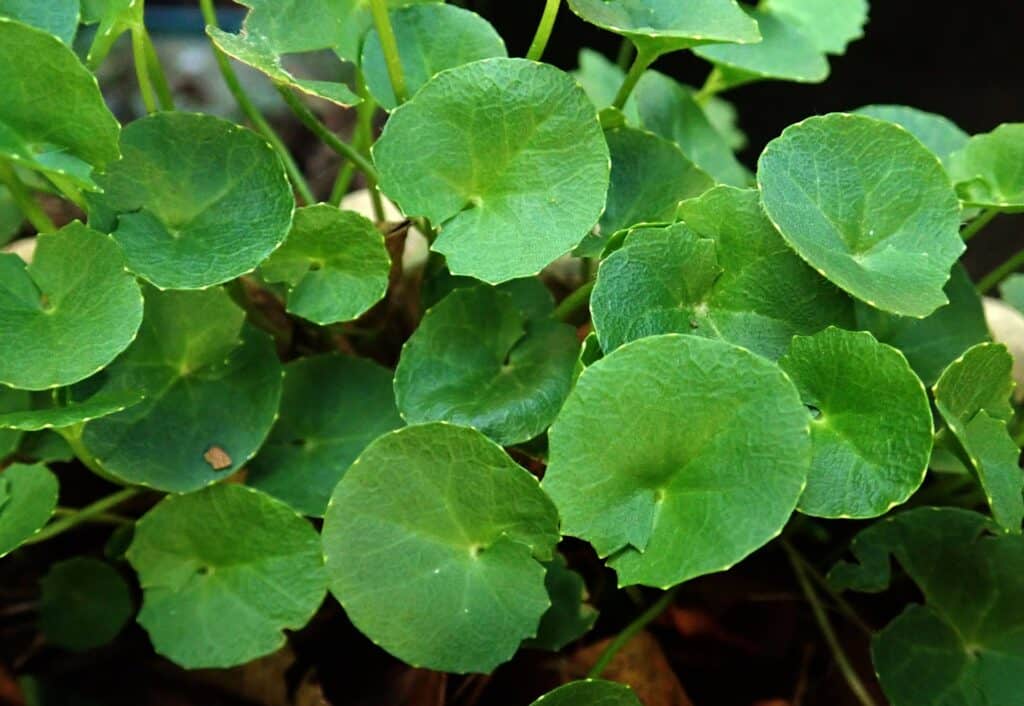
Gotu kola helps reduce active inflammation and promotes wound healing. This plant is also known for stimulating collagen synthesis and cellular turnover in the skin, reducing the appearance of scars and rejuvenating your skin’s appearance.
Try making an infused herbal oil with Gotu kola leaves. This oil can be used all over the body, including the hair and scalp.
Do you have acne? Would you like to learn some actionable steps you can take now to help heal your skin? Download my free ebook “7 Steps to Healing Acne Naturally” here!
What skincare products do you use on your skin? Are you a fan of any herbs for your skin health? Let me know in the comments below!


